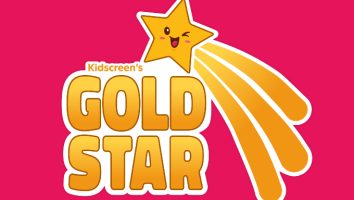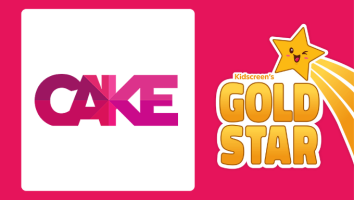The kids industry took a collective trip to camp this summer, pitching virtual tents and singing socially distanced campfire songs. Companies from Kidpik to Monster Jam to GoldieBlox raced to launch informal educational experiences online in an effort to capture the spirit of camp, which many kids had to forego as COVID-19 continued to spread. Indeed, so many virtual camps have popped up that online activity booking platform Sawyer moved quickly to partner with the companies behind them to create a curated list for families.
Virtual camps are definitely an on-trend way to engage kids. But on top of that, their offer of escape and structured learning, not to mention specific exploration of things like music and arts & crafts, gives virtual camp content a long shelf-life that should appeal to kids even after the pandemic passes, says Catherine Winder, CEO of Wind Sun Sky Entertainment.
Beyond filling a current market need, virtual camps are also easy to make, with producers able to turn around the live-action content in a matter of weeks, Winder adds. And with worldwide restrictions keeping kids apart for the foreseeable future, there is likely to be continued demand for this type of content—for at least a little while longer. “Even when kids get out and about once more, families will always be looking for content that gets kids active and thinking, and that’s what camps do best,” says Winder
Wiggling into a virtual experience
The virtual camp’s live format lets The Wiggles see what fans connect with in real-time.
After cancelling their North American shows for 2020 because of the pandemic, Australian kids music group The Wiggles knew they needed a digital pivot to reach kids and families. Seeing an opportunity to engage kids on social media, and experimenting with a new format, the brand launched Virtual Summer Camp with The Wiggles and Rascal + Friends in the US and Canada, says Yellow Wiggle Emma Watkins, who is also one of the group’s producers.
Sponsored by baby products manufacturer Rascal + Friends, the virtual series first launched on July 14 and is a two-week virtual camp experience for toddlers and parents. Recorded live in 20-minute increments (the short length was chosen to reduce kids’ screen time), the content rolls out on the Wiggles and the Rascal + Friends Facebook pages. It features Watkins and actor Paul Paddick, who plays friendly pirate Captain Feathersword, doing simple crafts, singing and dancing. The live format allows the Wiggles to engage with the audience in real time, as well as get instant feedback on what kids want to see (or, in many cases, what songs they want to hear), adds Watkins.
“The virtual camp lets us emulate our actual stage shows, but in an activity-based setting where we can be ourselves and the audiences can sit back and relax while watching,” says Watkins. “This is a format we haven’t done before, delivering educational content that’s a bit different for kids.”
Just a few episodes in, the series has already received positive feedback from families looking for a fun escape during the day, she says. The spontaneity of a live format also keeps the Wiggles brand fresh and relevant to audiences, who are surely watching a lot of content while at home, adds Watkins.
Even after the pandemic is over and The Wiggles can get back on stages again, Watkins thinks the virtual camp format is one the brand should revisit in the future because it’s as close to a live show as possible without touring. Being able to see what kids are connecting with in real time also helps the brand plan its future digital content, she says.
“There will continue to be a need for content like our toilet training and social distancing songs, as well as educational entertainment,” says Watkins. “Virtual camps let us connect with multiple territories at once in a format that’s easy to make and accessible for audiences.”
WNET sets up Camp TV
WNET made every episode of Camp TV with a different theme to keep kids engaged with the format.
When the pandemic struck the US, public broadcaster WNET New York Public Media began hearing from organizations and companies wanting to support kids who were stuck at home. Throughout the spring, the pubcaster rolled out new remote-learning programs like Let’s Learn NYC, in which teachers taught remotely, and it became clear that kids and families needed this type of educational content to fill the school gap, says Sandra Sheppard, WNET’s executive producer and director of kids media and education.
Wanting to continue engaging kids into summer, while still meeting that demand for instructional content, the broadcaster pivoted from the sometimes rigid format of Let’s Learn NYC to something more playful and informal, akin to what kids would experience at a summer camp.
Produced in roughly six weeks, Camp TV is a 20 x 60-minute series for kids ages five to 10 that focuses on accessible activities anyone watching can follow along with. Content will be repeated throughout the summer months on the channel so kids can tune at their leisure.
WNET tapped Broadway actor Zachary Noah Piser (Dear Evan Hansen, Wicked, pictured top) as a virtual summer counsellor who will guide kids through art, storytelling and movement activities, with every episode revolving around a different theme such as cooking or sing-alongs. Pisner takes on fun challenges, like seeing how many hats he can stack on his head, that are fast-paced and drive the episode forward. Every ep ends with a story reading to close things out on a quieter note.
To broaden its reach nationally, the network incorporated footage from content partners across the US, including The Wildlife Conservation Society, Brooklyn Botanic Garden, New York Public Library and The Franklin Institute Science Museum. Having a variety of segments throughout the episodes helps change up the pace and keep kids engaged, says Sheppard.
The series has already been resonating well since its July 13 launch, with kids outside the target age range saying they’ve tuned in because the content is informative, says Sheppard. WNET also launched a digital hub on its website featuring clips, resources for activities and details on its content partners to make its content more accessible.
And while Camp TV was created in response to the pandemic, Sheppard sees future potential for the format when things return to normal.
“There’s a dearth of host-driven scripted series that can deliver an educational wow factor and encourage kids to try something new,” she says.
Taking a trip to Camp Bonkers
Wind Sun Sky sped up its Camp Bonkers plans to get a jump on building a bigger camp-focused brand while kids are at home.
Wind Sun Sky’s trip to virtual camp predates the pandemic. The Canadian prodco behind Super Dinosaur and Invincible for Amazon Studios was already gearing up to launch a bigger camp-focused brand in 2021 to tap into a demand for educational content that gets kids active and trying new things. But when the pandemic struck, the company saw a window to release Camp Bonkers early, says Winder.
In the span of six weeks, the prodco developed its seed of an idea into a scripted series with three new eps launching each week, plus a social media presence and marketing strategy, says Winder. It sent green screens and cameras to the actors who would host the series, and had directors work with them virtually to help find the right voice to engage a six- to nine-year-old audience.
The activity-based program encourages kids to play games, sing, make food and try new science experiments at home. Wind Sun Sky plans on making 50 x 30-minute videos by the end of summer. Each day is a different theme: Make-It Monday (crafting and arts), What-A-World Wednesday (history and science education) and Fun-Time Friday (comedy). The structured experience gives audiences something to come back to throughout the week, Winder says.
Content began rolling out on the Camp Bonkers YouTube channel (445 subscribers) two months ago, and it has netted more than 220,000 views. Some of the most popular videos include Discovering Dinosaurs and Crafting Through Time.
The format recently caught the eye of techco Fingerprint Digital, which picked up the series to launch on July 20 through its subscription app Kidomi, says Winder. Toyco Playmonster also visited the Camp Bonkers tent to market its Spirograph toys in an episode, which garnered a positive response from viewers, she adds.
Now that the YouTube content has seen some success, the goal is to work on an app and find broadcasters and production partners to produce new episodes. Winder would like to keep making new eps into the fall to continue engaging kids.
“We launched this for the altruistic opportunity to support kids and families during what isn’t an easy time for them,” says Winder. “But at the same time, this is a fitting way to build our brand sooner, and in a way that families can continue engaging with whenever they want organic learning and content that will get them active while at home.”




























